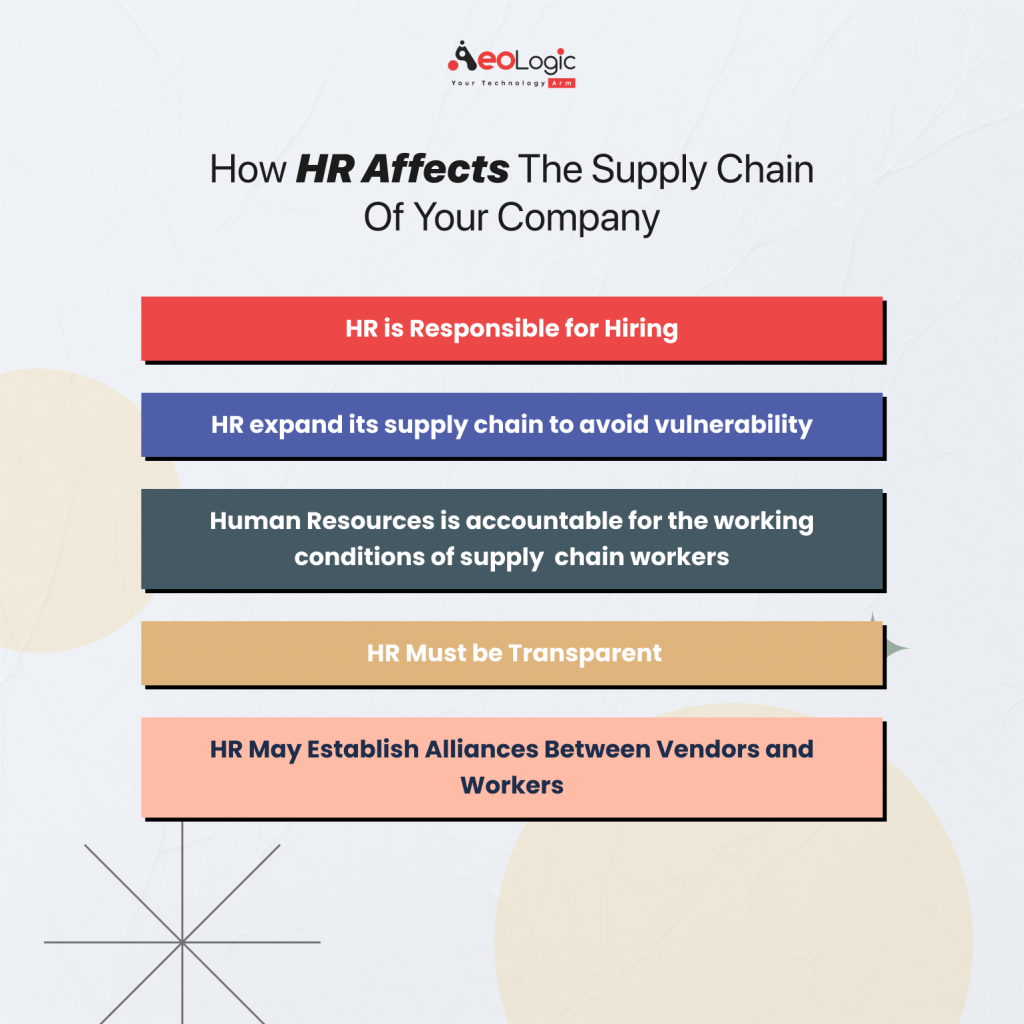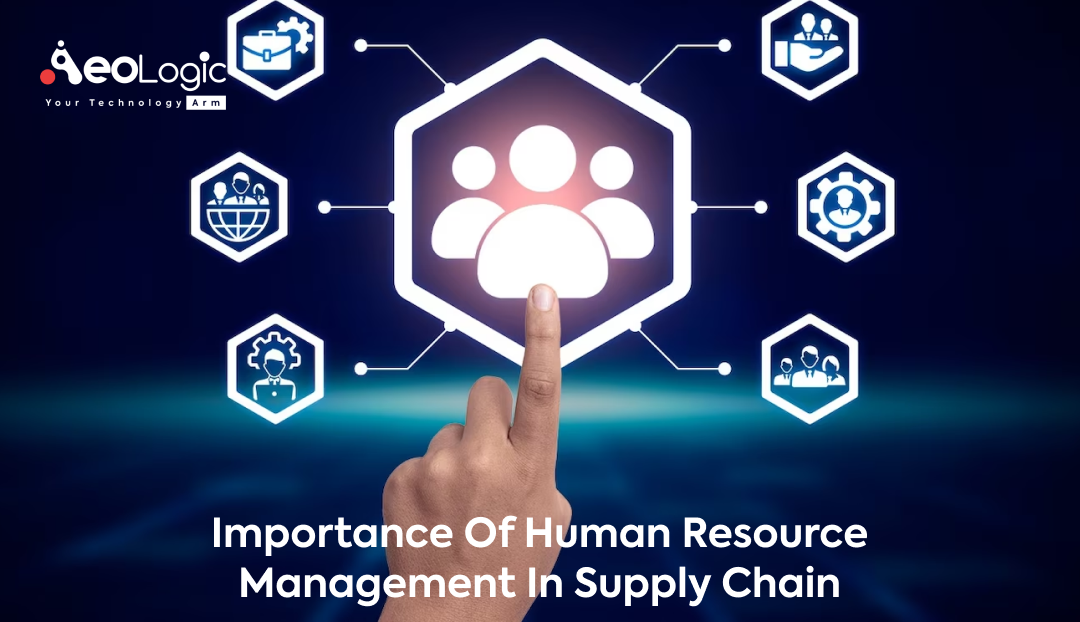Discuss the role of human resource management in effective supply chain functioning. Through Human resource management supply chain management can become more effective and efficient in the firm. The main purpose of this article would be to talk extensively about the potential role of HR in supply chain and how and why they can bring added value to the whole supply chain operations and business logistics employing it.
Understanding HR’s Role in Supply Chain Management
When it comes to HR, it is much needed in supply chain management to make sure the supply chain is handled effectively, the role of HR in supply chain is properly defined and relevant training is given to the right people. HR professionals are held accountable for onboarding and keeping employees with the necessary skills to excel in coordinating the supply chain network. It is very critical, especially in the modern fast-moving business environment, where supply chains are global and very complex to handle.
Also Read: The Role of HR in Organizational Development
What Should Human Resources Know About Supply Chain Management?
The supply chain is always evolving, but the only thing holding it back is a lack of trained experts who can manage the supply chain from beginning to end. As a result, the human resources department may be tasked with finding people who can access and use technology in this industry.
Consider that a decade ago, the technology used for supply chain management was excel sheets or a structure that was close to it. Today, however, we live in a new world where supply chains are managed using sophisticated technology such as algorithms or machine learning. These algorithms assist supply chain managers in understanding requirements based on product lines, access regions, suppliers, factories, market patterns, and so on.
It is also essential to note that the method of collaboration has changed. Previously, most communication was done over the phone, such as asking if the supplier wishes to commit to a specific forecast. AI, machine learning, cloud technologies, XML, web services, and other automated tools are now available.
Given the requirement for supply chain management, human resources must include people who understand how to manage and handle this system with minimum oversight. It is not conceivable to recruit someone, train them for three months, and then begin working with them. Of course, many businesses do this, but only when they don’t need a supply chain manager right away.
Also read: Human Resource Management Challenges and Solutions
How HR Affects the Supply Chain of Your Company

The role of HR in supply chain should consider the individuals that make up their supply chain team to boost productivity, even though business owners might be worried about how affordable or sustainable their supply chain is.
1. HR is Responsible for Hiring
If your HR department is directly responsible for staffing your supply chain management team, the proper onboarding process is required. To be productive, everything from printing out the necessary documentation for new hiring to training personnel must be streamlined.
Customer satisfaction and organizational performance will improve with the correct personnel, however, an unqualified employee may result in missing deliveries or product shortages.
2. HR has to expand its supply chain to avoid vulnerability
Most businesses rely on several partners and services to maintain a healthy supply chain, but you can’t rely on just one organisation for your supplies. The right people will understand how to work in a symbiotic partnership while also having the foresight to grow their supply chain.
HR should ensure that the individuals running their supply chain are capable of meeting regulatory compliances, either by experience or by holding the appropriate qualification or expertise. If you have any doubts about an application, have them perform their duties as part of a training test run.
3. Human Resources is accountable for the working conditions of supply chain workers
Thousands of factory workers were killed in the Rana Plaza disaster in 2013. Employers have no reason to promote bad working conditions in the developing countries. Your HR department can conduct research on overseas supply chains to ensure proper employee treatment.
Remember that when something goes wrong, people remember the name of the firm being provided, not the name of the supplier. Customers conduct their homework and will not accept ignorance as a justification for your activities if you support terrible international suppliers.
4. HR Must be Transparent
No supply chain can operate in a vacuum; it requires several steps, people, and processes to function properly. As a result, in order to be trusted, HR must be upfront with employees. At the same time, HR should hire people who can readily acquire people’s confidence and build connections.
Because supply networks rely on collaboration, HR must listen to input in order to optimise the onboarding process, facilitate shared planning, and reduce supply chain risks. Hire team members that respect the opinions of others and can handle continual criticism.
5. HR May Establish Alliances Between Vendors and Workers
Employers who directly affect their supply chain need to know how important it is for employees and suppliers to establish a strategic alliance. The people hired must be capable of situation analysis and data-driven decision making.
Recruiters must seek applicants who are motivated to assist their company in achieving its objectives. Long-term relationships should be prioritized by your employees over immediate financial rewards. Long-term collaborations are a safer bet for startups facing challenges like product shortages, supply chain interruptions, and disgruntled customers due to delayed delivery.
Also read: The Role of Human Resources in Business Continuity Planning
Final Words
For smooth operation, and reaching the business’s objectives all HR and supply chain management should be in tandem. To ensure the proper performance of the supply chain, HR must focus on proper training, employee management, adopting new digital tools, and planning workflow with the changing market with time. While businesses continue to change and advance, the role of HR in supply chain has a lot on its plate to manage effectively.
Connect with us to learn more about HR practices in organizations.







